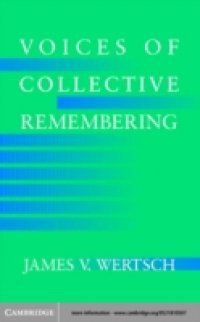There is currently a great deal of discussion in the humanities and social sciences about collective memory, but there is very little agreement on what it is. The first goal of this volume is to review various understandings of this term to bring some coherence to the discussion. Drawing on this review, James V. Wertsch goes on to outline a particular version of collective remembering grounded in the use of 'textual resources', especially narratives. This takes him into the special properties of narrative that shape this process and into the issues of how these textual resources are produced and consumed. Wertsch brings these general ideas to life by examining the rapid, massive transformation of collective memory during the transition from Soviet to post-Soviet Russia.

